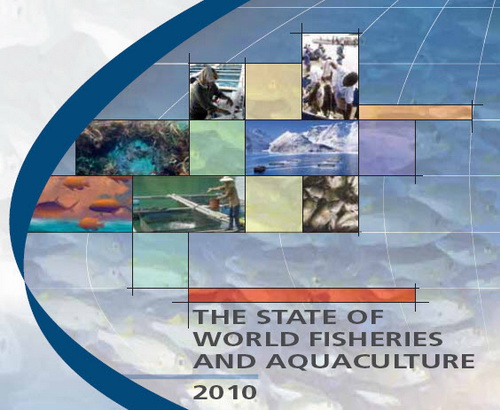SOFIA 2010
| FISH consumption around the world is soaring to an all time high, the United Nations Food and Agricultural Organisation (FAO) says in its latest assessment of the global seafood industry. |
However, the FAO's surprising finding is that fish farming is now starting to overtake the traditional trawl catch method of fishing in terms of total production.
Fish consumption climbed to nearly 17 kilograms - or 37lbs - per person, says the FAO report. In 2009 145-million tons of fish were caught and consumed, up by five million tons from the previous year.
But aquaculture now employs 10.8 million workers - or some 24 per cent of all fishing related employment. By comparison just under four million were employed in fish farming in 1990.
The FAO says that traditional fishing is starting to stagnate. Dwindling stocks due to overfishing and stricter catch quotas are almost certainly the two main causes for this.
The FAO said: "Since 1990, fish farmers have experienced the greatest increases in their numbers, with most of the growth occurring in Asia, particularly in China where the number of fish farmers increased by 189 per cent in the 1990-2008 period."
The report is titled "State of the World's Fisheries and Aquaculture" and is published from the FAO headquarters in Rome. It says that the increase in fish consumption was mainly due to the surge in fish farming which has made many once expensive fish such as salmon and shellfish more readily and cheaply available. The 40 plus million employed in fishing of all types sustain the livelihoods of some 540 million worldwide - or eight per cent of the world's population.
The report adds: "The status of global fish stocks has not improved. But people have never eaten as much fish and more people than ever are employed in or depend on the fish farming sector."

